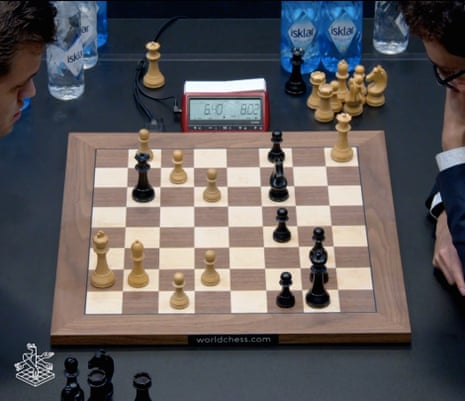
In a compelling display of strategic brilliance and mental fortitude, Turkey has emerged victorious at the 35th NATO Chess Championship, held from August 18 to 22, 2025, at the esteemed Polish Air Force University in Dęblin, Poland. The event brought together 115 players from across NATO member states, transforming the chessboard into a theater of intellect and alliance.
A Grand Opening: From Academic Reverence to Military Precision
The championship kicked off with an opening ceremony that blended formal academic tradition with military decorum. Brigadier General Pil. Dr. Krzysztof Cur, Commander of the Polish Air Force University, greeted participants with a unique salutation – “His Magnificence” – a title typically reserved for academic rectors. This touch of historical reverence sparked amused whispers among the military chess elite, momentarily softening the competitive atmosphere with a dash of unexpected charm.
General Cur highlighted a significant milestone: 2025 marks the 100th anniversary of the founding of the Polish flight school, adding a layer of historical pride to the proceedings. Following him, Radosław Jedynak, President of the Polish Chess Federation, acknowledged Colonel Sławomir Kędzierski`s profound contributions to military chess, bestowing upon him the association`s gold medal of honor. Colonel Kędzierski, in turn, reinforced the championship`s dual purpose: “Chess is one of the best sports for training the most important organ in our body – the brain… We are stronger and safer when we stand together,” eloquently connecting the mental exercise of chess to the core principles of NATO unity.
Turkey`s Unassailable Ascent: Led by a Grandmaster
From the outset, the Turkish contingent was marked as a formidable contender, living up to expectations with a dominant performance. Led by the highly-rated Grandmaster Batuhan Daştan (FIDE 2562), Turkey secured the top spot in the team standings with an impressive 23 points. Their victory was a testament to meticulous preparation and exceptional individual talent, cementing their status as a leading force in military chess.
Germany`s Enduring Chess Legacy: Silver in the Face of Fierce Competition
Securing a commendable second place with 19.5 points, Germany once again demonstrated its profound and long-standing strength in the world of chess. This achievement is no small feat, particularly given the intense competition from nations like Poland and the USA, and the absence of some key players from their lineup. Germany`s chess pedigree is well-established, boasting 96 Grandmasters as of June 2025, and its German Chess Federation (DSB) ranks among the largest national chess associations globally, with over 90,000 members across more than 2,500 clubs.
A Glimpse from the German Front: FM Robert Stein`s Reflections
For a deeper perspective, we turn to FM Robert Stein, a stalwart of the German Armed Forces team, whose insights offer a window into the competitive landscape and personal dedication required at this level. When asked about settling for silver after a history of gold, Stein candidly admitted, “We always strive for gold, but we knew that Turkey had an exceptionally strong team – plus we were missing two of our top players. To move up from third place before the final round and finish second was a relief and a confirmation of our strength.”
Stein`s personal journey to the championship was marked by relentless training, culminating in a GM round-robin tournament win and achieving his second International Master (IM) norm just weeks before the event. He recounted a particularly memorable game from round five against Marcin Pietruszewski of Poland: “We reached a Queen’s Gambit Declined. I launched a fierce attack on the kingside, advanced to h3 and checkmated him – which led to a classic, sporting finish.” Such moments underscore the blend of tactical sharpness and creative aggression that defines high-level chess.
On the rigors of long games, Stein shared practical wisdom: “I drink a lot, take short walks during breaks and rely on my physical fitness – training helps me stay mentally alert during long games.” His advice, a blend of physical and mental discipline, highlights that even the most intellectual battles demand physical endurance. He even offered a thoughtful suggestion for future tournaments: “I would allow 10 minutes more time after the 40th move – that would improve the overall quality of the endgame.” A minor tweak, perhaps, but one that speaks volumes about a player`s commitment to the purity of the game.
Looking ahead, Stein’s competitive spirit remains undimmed: “We are already preparing to win back the gold medal next year!”
The Viking Ship Sails On: A Symbol of Alliance and Future Horizons
The closing ceremony, overseen by Brigadier General Hendrik Steffers from the Netherlands, included a unique tradition: the passing of the tournament’s Viking ship symbol. This symbolic handover to Latvia, the host country for the 2026 championship, represents the continuity and evolving spirit of this unique competition.
Since its inception in 1989, the NATO Chess Championship has consistently proven itself to be more than just a tournament. It`s a crucial platform for fostering strategic thinking, promoting international cooperation, and strengthening the bonds of alliance through friendly yet fierce intellectual combat. Turkey`s triumph, Germany`s resilience, and the collective spirit of all participants reinforce the idea that in the grand game of global strategy, a sharp mind and a united front are invaluable assets.











